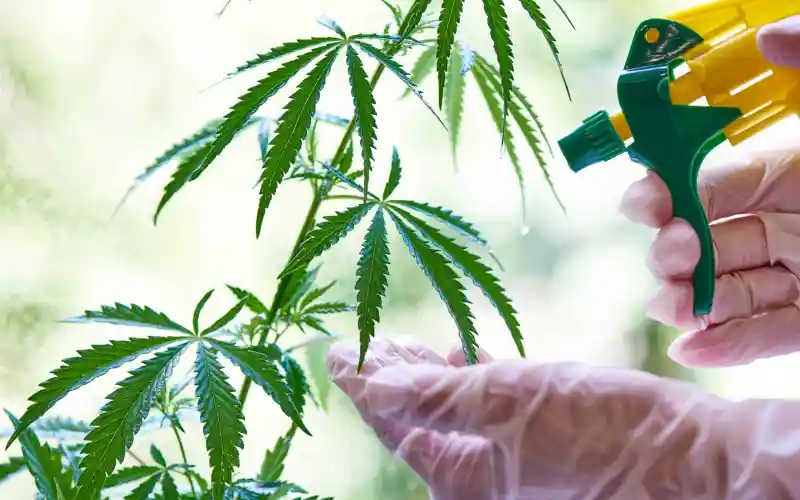Recent research into the potential uses of hemp shows that cannabinoids produced by the plant could one day be the source of new natural pesticides, according to researchers at Cornell University in New York. The study by scientists at the School of Integrative Plant Science at Cornell AgriTech’s College of Agriculture and Life Sciences (CALS) found that a higher concentration of cannabinoids in the leaves of hemp plants showed less damage from chewing insects compared with leaves less rich in cannabinoids.
The researchers hope that further study could build on these findings to eventually produce new natural insecticides, most likely for use on non-edible plants only. The potential for using the new pesticides on food crops seems unlikely at this point because of the pharmacological effects of cannabinoids including CBDA, THCA and GBGA, which can be converted to CBD, THC and CBG, respectively, with the addition of heat in a process known as decarboxylation.
Larry Smart, a plant breeder and professor at CALS, says that researchers have studied the intoxicating and medicinal effects of cannabinoids, which are produced almost exclusively by cannabis plants, since the compounds were first identified decades ago. But little research has been conducted to determine exactly why cannabis plants first developed the more than 100 distinct substances.
“It has been speculated that they are defensive compounds, because they primarily accumulate in female flowers to protect seeds, which is a fairly common concept in plants,” said Smart, the senior author of the study, according to a report from Hemp Today.
“But no one has put together a comprehensive set of experimental results to show a direct relationship between the accumulation of these cannabinoids and their harmful effects on insects,” Smart continued.
Cornell’s Hemp Breeding Program Launched in 2017
The research was conducted as part of Cornell’s hemp breeding program, which was launched by the Ivy League university in upstate New York in 2017. The program began its work by evaluating different commercially available hemp cultivars so recommendations could be made to farmers about which varieties are best suited to the local soil and climate.
The researchers noticed that varieties of hemp sourced from a breeding program in Ukraine that did not produce cannabinoids were all highly susceptible to damage from Japanese beetles. Other hemp varietals that produce cannabinoids were not similarly prone to damage from the insects.
“In the absence of cannabinoids, we saw heavy insect damage, and in the presence of cannabinoids, we saw much less damage,” said Smart.
The researchers then isolated CBDA and CBGA for use in controlled insect feeding studies. THCA was not studied as part of the research because strict federal limits on THC in hemp crops prevent Cornell researchers from working with the compound.
The cannabinoid extracts were added to an artificial insect diet in varying concentrations. The researchers determined that insect larvae grew less and had lower rates of survival as the concentration of cannabinoids was increased.
“The study gives us insight into how cannabinoids function in natural systems, and can help us develop new THC-compliant hemp cultivars that maintain these natural built-in defenses against herbivores,” said George Stack, a postdoctoral researcher in Smart’s lab and one of the authors of the new study.
The researchers plan further investigation to determine if sap-sucking insects such as aphids are also adversely affected by cannabinoids. However, Stack noted that the research is hindered by the continued illegality of marijuana at the federal level.
“The potential use of cannabinoids as a pesticide is an exciting area for future research, but there will certainly be regulatory barriers due to pharmacological activity of the compounds, and more studies are needed to understand what pests cannabinoids will be effective against,” Stack said.
The study, “Cannabinoids Function in Defense Against Chewing Herbivores in Cannabis Sativa L.,” was published in October by the peer-reviewed journal Horticulture Research. (Full Story)

